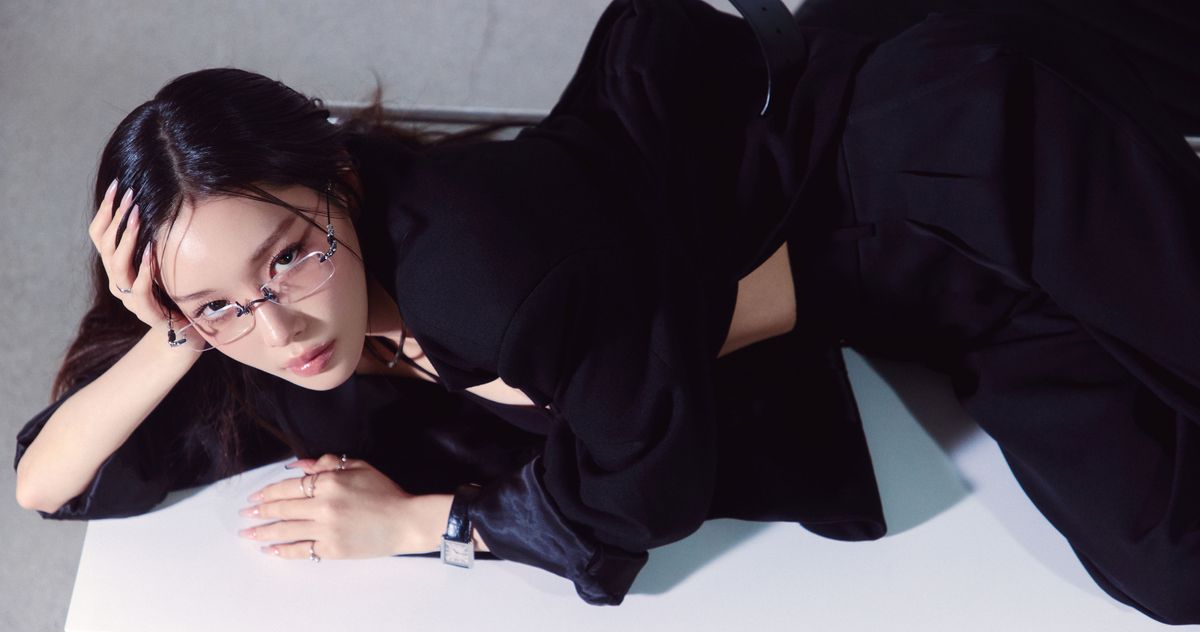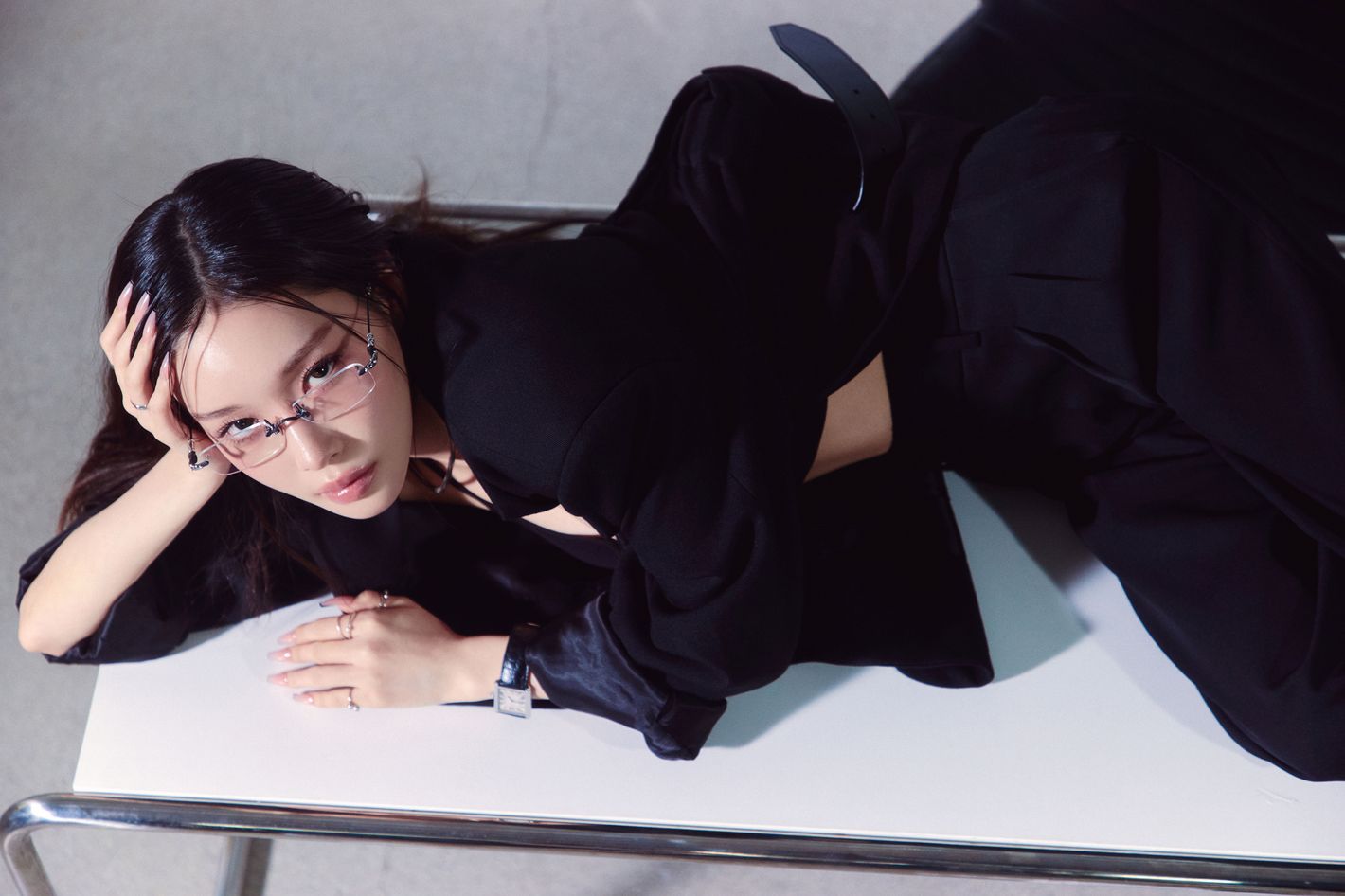Chung Ha Is Still In Vogue on Alivio
The K-pop soloist knows her fans have been waiting for “Mother” to return to this type of sound and choreography.


Chung Ha would love to experience ballroom culture in its birthplace, to attend a ball in the city where the Black and Latino LGBTQ+ community pioneered the modern ballroom scene: New York. “That’s literally on my bucket list,” she told Vulture. “I don’t know if I would go and be all like” — she paused to flip her hair over her shoulder — “Look at me, look at me, look at me. But I’d definitely love to see what they’re giving out to the audience and just join the moment.” The 29-year-old K-pop singer is no stranger to South Korea’s burgeoning ballroom scene, which she has helped highlight through her music videos and performances. Chung Ha also “goes way far back” with Love Ran, who organized the country’s first-ever ball in 2017 and is the mother of Korea’s largest kiki house, the House of Love. Love Ran has collaborated with Chung Ha multiple times, most recently as one of the contributors to the vogue-heavy choreography for the soloist’s latest house track, “Stress,” which features vocals soaring over a thumping four-on-the-floor beat.
“Stress” joins “Thanks for the Memories,” a pop-rock song that demands to be scream-sung, as one of two title tracks off her new eight-track EP, Alivio. It’s been a journey to get to this release. Chung Ha has previously shared that she felt burnt out and considered quitting the industry during her hiatus after leaving MNH Entertainment in April 2023. But fellow Korean American artist and More Vision CEO Jay Park kept reaching out for meetings, and Chung Ha ultimately signed with his label that October. More than a year of singles (and several collabs) later, she’s finally ready to return with a lengthier project. And this time around, she’ll understand her celebratory comments section a little better, thanks in part to the realization that being called “mother” has ballroom roots. Tied to the queer history of leaders of chosen families known as houses, the term is now used more loosely online to convey respect and admiration for female celebrities. “This is so funny, ’cause when I joined More Vision, there were a lot of comments like, ‘Mother is back,’” Chung Ha recalled. “I’m like, Why am I their mother? I don’t know what I did! Now I see.”
House music feels like a staple of your discography. Even when you tried new sounds in title tracks like “Eenie Meenie” and “Bicycle,” you dropped B-sides with house beats. What attracted you to the genre?
I never knew that I loved house music, to be honest. I didn’t know it would suit me that well. Funnily, I started my solo career with a very tropical sound with “Why Don’t You Know?” And I was like, I don’t know if this fits me. And then the moment it became a good hit, I was like, Okay, I don’t know anything about me, so Chung Ha, please do try and be more adventurous. Be more open to people who’ve been in this industry longer than you. Just be a performer for maybe four or five years and then maybe you’ll get to learn and tap into some music parts that you didn’t know about yourself and discover some parts that you want to explore more. I think I naturally just had that growth in myself.
What factors do you consider when deciding which song will be the title track?
I have to be sure that I can make it one of my iconic tracks, or it has to be something where I explore and find sounds where the audience would be like, “Oh, this is her? That’s something new.” 100 percent confident or 100 percent adventurous.
“Stay Tonight,” “Dream of You,” “I’m Ready” — they were all side tracks. But my fans were complaining, of course. [Laughs] They wanted me to go on music shows and do promotions with that house vibe: “I wish you could do more of these kinds of songs, Chung Ha!” There were so many comments about that. I was like, “Okay, I will tap into some kind of house music that you guys would finally be happy about.” So my fans gave me that main motive — but the condition was only if I was really satisfied with the track, too. And I can say this album is fully my taste.
As a singer who participates in making your own choreography, what do you think a dance should add to your music?
I want the dance to make the audience hear more of the smaller elements of the song. Listening and looking makes you hear more, see more, and think about the track more. There’s a boom in the main chorus for “Stress,” before “Take it easy.” You can’t really hear it in the guide version of the track, but after me and my dancers listened to it over and over, we thought it was interesting and decided to highlight it in the dance. And when we did the music editing and mixing — ’cause we do that after the choreo most of the time — I tried to highlight it even more by killing the other sounds and making that part even bigger. It made it more fun to listen to.
The main style of the “Stress” choreography is voguing. When did you learn to vogue?
My first voguing experience was actually when we were doing “Stay Tonight,” which came out in 2020. I’ve really loved trying it out. I guess people thought I’d been voguing for many years because it suited me so well? Since then, so many people have said, “Add voguing elements to your title track whenever you do your choreography!” I was like, Okay, I’m going to. Period. So I went to Love Ran and asked her to collaborate with me again. She was actually my teacher when I was a trainee at a different company, and I always knew that she was the mother of voguing in Korea.
Voguing is tied to ballroom culture. Love Ran and multiple other people you’ve danced with belong to kiki houses in Korea, and people were thrilled when you judged at the Love Ball in 2022. How did you become so connected to the Korean ballroom scene?
I was just naturally exposed because my friends are dancers. They love to waack and vogue, and they’re all from the LGBTQ community. It was really natural for me to explore that world. I was a waacking dancer since I was in middle school, and before that I lived in America, so I was always open to anything. If there was a ball coming up, my friends would ask me, “Hey, do you wanna go and have fun with me?” And I would be like, “If I don’t have any schedules, I would love to.”
When did you realize you wanted stress relief to be the concept for Alivio? Were you stressed and manifesting how you wanted to feel, or relaxed and looking back?
Hmm … both. Because stress is a very common feeling. I wanted to tell myself, “Hey, Chung Ha, it’s okay to be finally telling people that you’re fragile and vulnerable. You don’t have to look strong and always sparkle just because you’re a singer and a celebrity.” You know, the K-pop system … at that time, my previous company wanted me to be glittery and sparkly. And of course I love that part, but when Bare & Rare Pt. 1 dropped, I wanted to take all the glitter out. But the company CEO still wanted me to sparkle and then the title track was “Sparkling,” so I couldn’t really “go bare.” This time, I wanted to just let go. I realized while getting ready for this album that you have to let go to try new things. And it’s finally giving closure to the journey that I’ve felt for the last four or five years.
You asked More Vision for a break at the end of last year — and said in a livestream that you’d never made that request in your nine-year career before. How’d you get to a point where you finally felt able to say when you need rest?
Before this album release, I was going through a lot of stress. ’Cause in 2024, I was trying to navigate new waters and at the same time do projects that my fans were eagerly waiting for, like another collaboration with Rado. And hosting a daily radio show wasn’t easy. It didn’t give me any free time, and I was also so busy gathering my recordings and getting my album together. I was like, My title track’s “Stress,” and I’m trying to tell people to let go of it. But I’m the one who hasn’t! Is this even right? So I told my team, “I think I really need a beat.” I didn’t feel comfortable telling people to relax when I’m not relaxed. I needed to find some kind of inner peace in that moment.
What difference did that make? Did it change the way this career or industry feels to you?
To be honest, I did get a little break from the camera and my fans, but I didn’t get a break from my album. I was in meetings, editing my songs and my music video, doing designs, and making the cards for the album. But then I thought, Would it really be comfortable for me to have a break and just … not work on my album? Would that really give me some kind of release? And the answer was “no.”
Your friend and fellow soloist Sunmi is featured on Alivio. Can you walk me through how that collaboration happened?
As soon as I heard “Salty,” I had this retro, nostalgic vibe pop out in my head. That automatically led me to her. The lyrics reminded me of her, too. I called the writer who gave it to me and was like, “Oppa, this should be Sunmi unnie’s track, not mine.” I don’t think I would have this on my album if she didn’t hop on it. I was really careful, ’cause I knew she had her own things to get ready for. But she automatically said “yes,” and as soon as she finished, I was mind-blown. People will be surprised at how different but balanced our vocals are. Her voice is deep and airy, and mine is … I don’t wanna say loud, but a little more dynamic.
Speaking of singing with other people, you debuted in the temporary group I.O.I. What’s it been like seeing the proliferation and evolution of survival shows since Produce 101?
I envy the groups who stay together longer than ten months! I really do. I would love to gather with my girls again. We always talk about it. I don’t know if it would really happen, but it would be one of my dreams come true.
At the same time, I feel a little sorry for everyone on those shows. There are so many trainees and dreamers out there. I know how hungry people are to be in the process. But you have to be able to face all the comments, including rude comments. Of course, there’s encouraging comments. But you might even not be mentioned. There’s always main characters, and you might not be one. I’m just … I get hurt also. I can’t watch those shows anymore. Me and my girls cry, ’cause we’ve been through all that. We get the retrospective memories back, so we just can’t look. But I really do hope that each and every soul that loves to sing finds their own way.
Related








